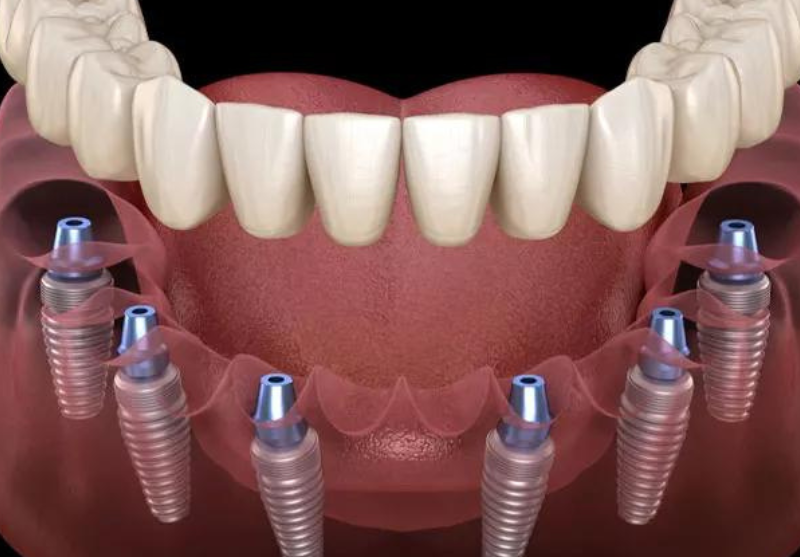Dental Implants and Emergency Dentistry: A Comprehensive Guide
In the realm of modern dentistry, two key terms have gained immense significance – Dental Implants and Emergency Dentistry. These terms represent crucial aspects of oral healthcare, addressing both long-term tooth replacement solutions and immediate dental care needs. This comprehensive guide delves into the world of dental implants and emergency dentistry, shedding light on their importance, procedures, benefits, and what to do in times of dental crises.
Understanding Dental Implants
Dental implants are revolutionary solutions for individuals suffering from tooth loss, whether due to accidents, decay, or other oral health issues. These tiny titanium wonders serve as artificial tooth roots, providing a sturdy foundation for dental restorations such as crowns, bridges, or dentures. But why are dental implants considered a game-changer?

The Importance of Dental Implants
Dental implants offer numerous advantages over traditional tooth replacement options like dentures or bridges. They provide:
- Durability: Dental implants are built to last a lifetime when properly cared for, making them a long-term investment in your oral health.
- Aesthetic Appeal: Implants look and feel like natural teeth, boosting confidence and self-esteem.
- Improved Functionality: Unlike removable dentures, implants enable natural chewing and speaking abilities without slippage concerns.
- Bone Health: Implants stimulate the jawbone, preventing bone loss that can occur when teeth are missing.
- Convenience: There's no need for special adhesives or nightly removal, as with dentures.
- Preserving Adjacent Teeth: Implants don't require the alteration of adjacent teeth, as is often necessary for bridges.
The Dental Implant Procedure
The dental implant procedure involves several stages:
- Initial Assessment: The dentist evaluates your oral health, bone density, and suitability for implants.
- Implant Placement: A small titanium post is surgically implanted into the jawbone to serve as the artificial root.
- Osseointegration: Over several months, the implant fuses with the bone, creating a strong anchor.
- Abutment Placement: An abutment is attached to the implant, providing a connection point for the dental restoration.
- Restoration: Finally, a crown, bridge, or denture is affixed to the abutment, completing your new smile.
Emergency Dentistry
In the realm of oral health, emergencies can strike at any time, causing severe pain, discomfort, or injury. This is where emergency dentistry plays a critical role.

The Importance of Emergency Dentistry
Emergency dentistry is the branch of dental care dedicated to addressing urgent dental issues promptly. Dental emergencies can include:
- Severe Toothache: Excruciating pain often requires immediate attention to diagnose and alleviate the issue.
- Knocked-Out Tooth: Quick action can sometimes save a dislodged tooth.
- Broken or Chipped Tooth: Damage to a tooth can lead to infection or further complications if left untreated.
- Abscesses or Infections: Dental infections can spread rapidly, affecting overall health if not treated promptly.
- Soft Tissue Injuries: Lacerations or injuries to the gums, tongue, or cheeks may require stitches or other treatments.
- Lost Fillings or Crowns: When restorations come loose, they can expose sensitive tooth structures.
The Role of an Emergency Dentist
An emergency dentist is trained to handle various urgent dental situations. They provide:
- Immediate Relief: Emergency dentists prioritize pain management and swift resolution of dental issues.
- Preventive Measures: They take steps to prevent further damage or complications.
- Expertise: Emergency dentists are skilled in diagnosing and treating a wide range of dental emergencies.
- Availability: Many dental practices offer after-hours or emergency services to ensure patients get the care they need when it matters most.
Dental Implants And Emergency Dentistry - An Intersection
The worlds of dental implants and emergency dentistry intersect in several ways, demonstrating the importance of maintaining oral health and seeking immediate care when necessary.
Dental Implants and Dental Emergencies
While dental implants are typically considered a planned procedure, unexpected issues can arise during the process:
- Infection: Implant surgery carries a risk of infection, which, if left untreated, can lead to implant failure.
- Allergic Reactions: Rarely, patients may experience allergic reactions to implant materials, requiring immediate attention.
- Implant Complications: In some cases, implants may become loose, dislodged, or damaged, necessitating emergency care.
Dental Emergencies and Preexisting Dental Implants
For individuals with dental implants, dental emergencies can present unique challenges:
- Protecting Implants: Patients must be cautious to avoid injuring their implants during accidents or dental trauma.
- Addressing Emergencies: Dental emergencies in individuals with implants may require specialized care to preserve the integrity of the implants.
Tips For Dental Implant And Emergency Dentistry Care
To ensure optimal oral health and be prepared for unexpected dental emergencies, consider the following tips:
Regular Dental Checkups
Routine dental checkups are essential for monitoring the health of your implants and addressing any potential issues before they become emergencies.
Proper Oral Hygiene
Maintain good oral hygiene practices to prevent infections and complications around your dental implants.
Wear a Mouthguard
If you engage in sports or activities with a risk of dental trauma, wear a mouthguard to protect your implants.
Know Your Dentist
Find an experienced emergency dentist who is familiar with dental implants and can provide prompt, specialized care if needed.
Be Prepared
Keep an emergency dental kit on hand with essential items like gauze, pain relievers, and the contact information of your dentist.
Conclusion:
Dental implants and emergency dentistry are two pillars of modern oral healthcare. While dental implants offer long-term solutions for tooth loss, emergency dentistry ensures that unexpected dental issues are addressed promptly. Understanding their importance, procedures, and the ways in which they intersect can help individuals maintain their oral health and be prepared for any dental situation. Remember, whether you're considering dental implants or facing a dental emergency, seeking professional care is the key to a healthy and confident smile.
Comments
Post a Comment